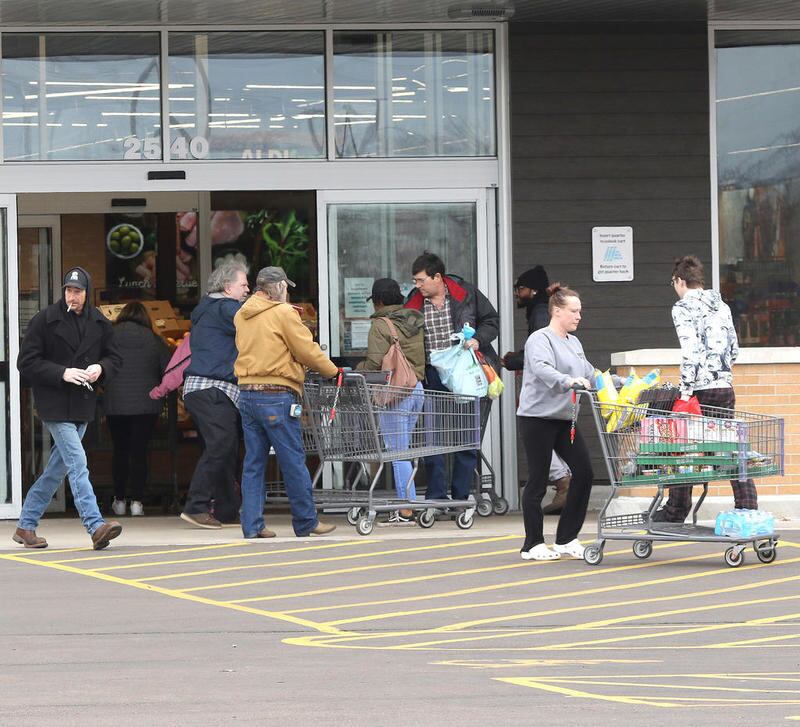The Sycamore City Council is expected to vote Monday whether to impose a local 1% grocery tax when the statewide tax sunsets at the end of 2025, documents show.
Sycamore City Manager Michael Hall has said the city would lose an estimated $720,000 in annual revenue if the grocery tax weren’t maintained.
Gov. JB Pritzker eliminated the 1% statewide tax on groceries, which is set to expire Jan. 1, 2026, but gave Illinois municipalities the ability to implement their own 1% grocery tax.
In a letter to Sycamore Mayor Steve Braser and the city’s eight alderpersons, Hall wrote that not continuing the 1% grocery tax would likely force the city to raise property taxes or reduce city services.
“If the 1% grocery tax remains in place, the estimated cost to an average Sycamore household is approximately $65 to $100 per year – a little over $5 to $8 per month,” Hall wrote. “This small individual cost helps generate $720,000 annually for the City to fund essential services used by all residents.”
The tax would be applied to unprepared foods such as fresh fruits and vegetables, uncooked meats, dairy products, and packaged food that are sold in Sycamore. It would also be applied to staple groceries such as bread, cereals, rice, pasta and other not ready-to-eat items.
Unflavored, non-carbonated bottled water would also be taxed, according to city documents.
:quality(70)/cloudfront-us-east-1.images.arcpublishing.com/shawmedia/2M2ONGZ5SNEFXCOLFMCPHPD32A.jpg)
Hall has previously argued that consumers won’t notice the grocery tax because they’ve grown accustomed to the similar, but now ending, statewide tax in their grocery bill.
“This ordinance does not increase the rate or introduce a new tax; it simply maintains the existing structure to ensure fiscal stability beyond January 1, 2026,” Hall wrote."
Although Pritzker cited a desire to ease Illinoisans’ grocery bill burdens when he eliminated the statewide grocery tax, some municipal leaders across the state have bemoaned the impact lost tax revenue will have on local budgets.
DeKalb, which Sycamore officials said collected similar amounts of state grocery tax funds to the city of Sycamore in recent years, also will implement a local 1% grocery tax after a June 23 DeKalb City Council vote.
The cities of Genoa and Sandwich also authorized the tax.
While the Sycamore City Council has not yet voted on the matter, many officials gave their opinions on the tax at a June City Council meeting.
During that meeting, Hall said about 3% of the city’s $26.6 million budget is funded through the statewide tax on groceries. Sycamore received $719,726 from the state for the 1% grocery tax in 2024, down $72 from 2023, according to city-provided numbers.
The Sycamore City Council has until Oct. 1 to approve a local grocery tax, documents show. If officials do enact the tax, the city won’t be collecting quite as much revenue as it once was. Since a statewide grocery tax was implemented in 1980, Sycamore collected 100% of the revenue generated from local grocery sales, documents show. If Sycamore approves a local tax to begin in 2026, the state will charge a 3% administration fee, meaning the city will receive 97% of tax revenue.
Of the eight members of the Sycamore City Council, only one, 4th Ward Alderman Ben Bumpus, spoke directly against the grocery tax proposal during the May 20 meeting. The Monday meeting begins at 6 p.m. at the City Center, 308 W. State St.

:quality(70)/author-service-images-prod-us-east-1.publishing.aws.arc.pub/shawmedia/114d2561-d902-4313-913c-3ed613087b49.png)